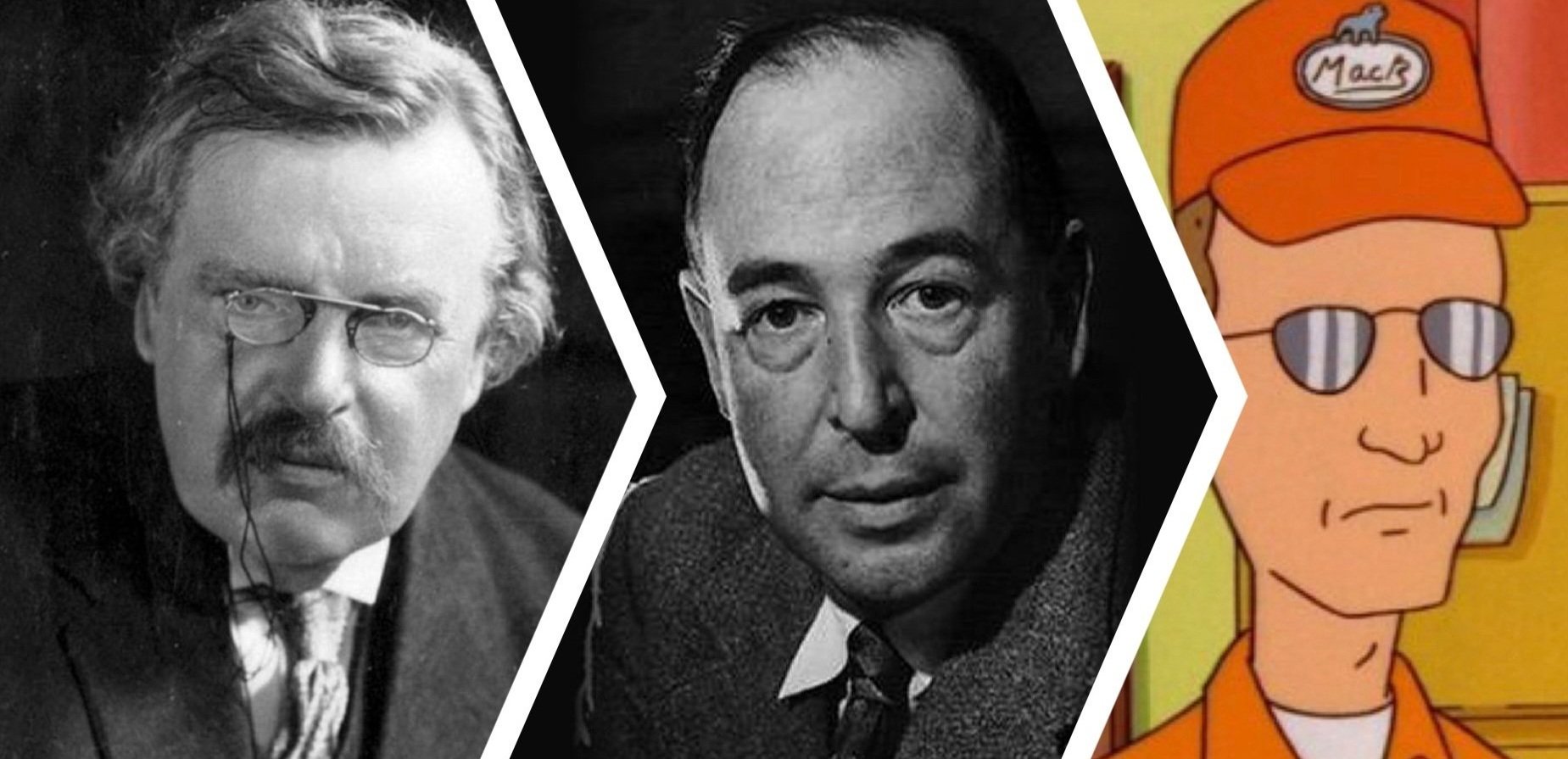Three great sages on talking to oneself
/Point: CS Lewis in chapter VIII of A Preface to Paradise Lost, writing of self-referential and -reverential modern “poetry which exists only for the poet”:
“There is nothing especially admirable in talking to oneself. Indeed, it is arguable that Himself is the very audience before whom a man postures most and on whom he practises the most elaborate deceptions.”
Counterpoint: GK Chesterton in a tongue-in-cheek review of his own short comedy play Magic, a quotation I once shared in the very early days of this blog:
“If a man does not talk to himself, it is because he is not worth talking to.”
Case study for your consideration: This exchange from “Tankin’ it to the Streets,” an episode from season six of “King of the Hill”:
“Hank: You know, Dale, sometimes I think you say things just to hear yourself talk.
Dale: What do you want me to do, ignore myself?”
Project for synthesis: In what ways is Dale Gribble A) the self-deceived man described by Lewis and B) a man worth talking to, as described by Chesterton? Is he either A or B or both A and B? Is he B despite or because of A?
File under either “Silliness” or “Questions Hank would never ask.”





